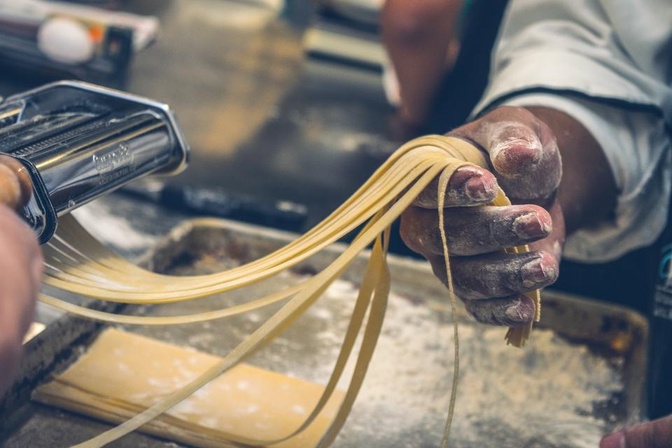Despite what we see on TV, becoming a head chef doesn’t happen overnight.

Ask most young hospo enthusiasts about their ultimate career goal and they’ll say they want to be a head chef. Not all however, are aware of the career steps involved. Some look at reality TV shows and think overnight success will happen if they can cook a soufflé in less than 30 minutes and guess all the ingredients in a beef laksa. Needless to say, that’s rarely the case.
“A cook or chef should never rush to become a head chef,” says Talent Kitchen’s James Dillamore. “You’ve got to learn from the bottom and try and get as much experience as possible. Try different venues. Learn from different types of chefs.
“Becoming a head chef can take up to 10 years. It all depends on the talents of the person – their style of cooking, choice of cuisine and cooking standards, as well as the size of the kitchen.”
Most commercial kitchens are set up based on the “brigade” system, a hierarchy developed France in the 19th century to streamline kitchen processes. Below, Dillamore outlines for us each level in a modern kitchen and the approximate years it takes to reach.
Note: these roles description are general only. Roles, responsibilities and job names vary between venues.
0–2 years
The pups of the kitchen. Commis are recent graduates still learning the basic skills of the trade. They are mainly involved with food preparation and in large kitchens, will rotate around the different sections to gain exposure.
2–4 years
Demis support the chef de partie at a specific station. They usually train new workers on kitchen procedures and are often in charge of budgeting for food and supplies.
4+ years
Also known as station chefs, chef de parties are in charge of a specific section of the kitchen. This may be entrees, sauces, meat or dessert. They work under the sous chef or head chef to ensure all food prep out of their station is of the highest quality.
5–7 years
Third-in-charge and assistant to the sous chef. They help with the day-to-day running of the kitchen. This usually includes managing inventory, food preparation, cleaning schedules and staff.
6–9 years
Second-in-charge. They’re responsible for the day-to-day management of the kitchen and will often be involved in developing menus with the head chef. When the head chef is away, the sous chef takes the reins.
8+ years
Also known as “executive chef”, they are the core of the restaurant and can make or break it. They’re the person in charge of all activities related to the kitchen including creating menus, overall costing, plating design, mentoring and running a tight ship.
Note: Not everyone who works 10 years in the industry becomes a head chef, as the role requires more than just kitchen skills. They’re also required to be a teacher, leader, accountant, negotiator and counsellor. Head chefs are also required to be supportive, approachable and adaptable. For aspiring head chefs, we recommend taking career development courses outside of the kitchen to work on management, leadership and business skills.
Given the required skills needed to be a head chef many move on to careers in restaurant management and business ownership.
Talent Kitchen is a specialist hospitality recruitment agency with offices in Sydney and Melbourne. It specialises in placing permanent chefs for all levels of experience.
Scout currently has a number of roles listed via Talent Kitchen. Review current opportunities here.



